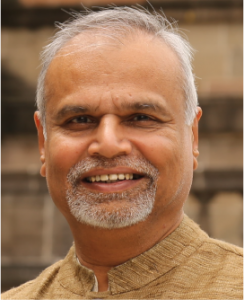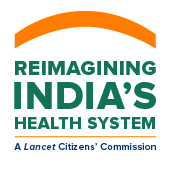In Conversation: Dr. Bhushan Patwardhan, National Research Professor – AYUSH and Distinguished Professor, Savitribai Phule Pune University
December 3, 2021

I graduated in biochemistry and pursued my research in pharmaceutical biology. I had experienced the use of simple herbal remedies and ayurvedic medicine since childhood. I remember an incident when a serious injury was treated simply by using black nut oil. At that time tetanus vaccine was not easily available. I was curious to know how this could have happened. While doing my master’s dissertation at Serum Institute of India I reported the bactericidal activity of black nut oil on Clostridium tetani at a very low concentration. Later, during doctoral research at Haffkine Institute, I studied its active ingredients, mechanism of action, pharmacological and anticancer activity. These early studies changed my perception of traditional medicine. Later, inspired by nutrition and public health specialists including Professor P.V. Sukhatme, N.H. Antia, Dr. N.S. Deodhar, Dr. Dr Banoo Coyajee I returned to academics to establish the Interdisciplinary School of Health Sciences at Pune University. As National Research Professor – Ayush, I continue work on evidence-based traditional medicine and public health.
The Commission is focused on reimagining the architecture of the healthcare system in India. However, our disease burdens are ingrained in social determinants such as diet, lifestyle, behavior, work environments. In my opinion, these approaches should be viewed as a key part of the health care system. In India, AYUSH systems are culturally rooted, locally relevant, and aligned to SDGs, which should be an integral part of healthcare. My role will be to highlight the evidence-based traditional medicine and mainstream AYUSH systems in public health to achieve UHC. My role also will be to facilitate reimagining exercise for the new paradigm of UHC in India by accelerating a mindset shift and broadening the mandate from disease/ cure to health and wellness; pharmacology/ therapeutics to physiology and
psychology; therapy/ rehabilitation to prevention and promotion as also economy/ growth to justice and equity. My specific interests at the Commission are in the areas of prevention, promotion, and formulating integrative health systems.
Our healthcare models are still stemmed from the “disease/sickness” oriented model primarily drawn from western medicine. Our approach for UHC should be inclusive based on the public good and not only business. The ground-level realities of public health and healthcare in India are different from the western world. The reimagining attempt can be best done after considering the complexity of our systems. The Indian healthcare system should focus more on our social milieu, national priorities, and leverage our own strengths and resources. I feel a culturally aligned inclusive approach may be better to
achieve UHC in India.
The NITI Aayog has appointed a high-power committee to consider a framework for the Integrative Health approach in line with national health policy 2017. Dr. Vinod Paul is Chair and I work as a co-chair of this committee. We have constituted working groups on medical education, research, practice, and public health. These groups are chaired by eminent medical scientists. The working groups have already submitted reports. The Commission with help of various ongoing studies and consultations may provide innovative and far-reaching recommendations to facilitate the process by evidence-based policy and framework for effective implementation of NHP 2017 in the ‘vocal for local’ spirit to achieve the UHC goals.
